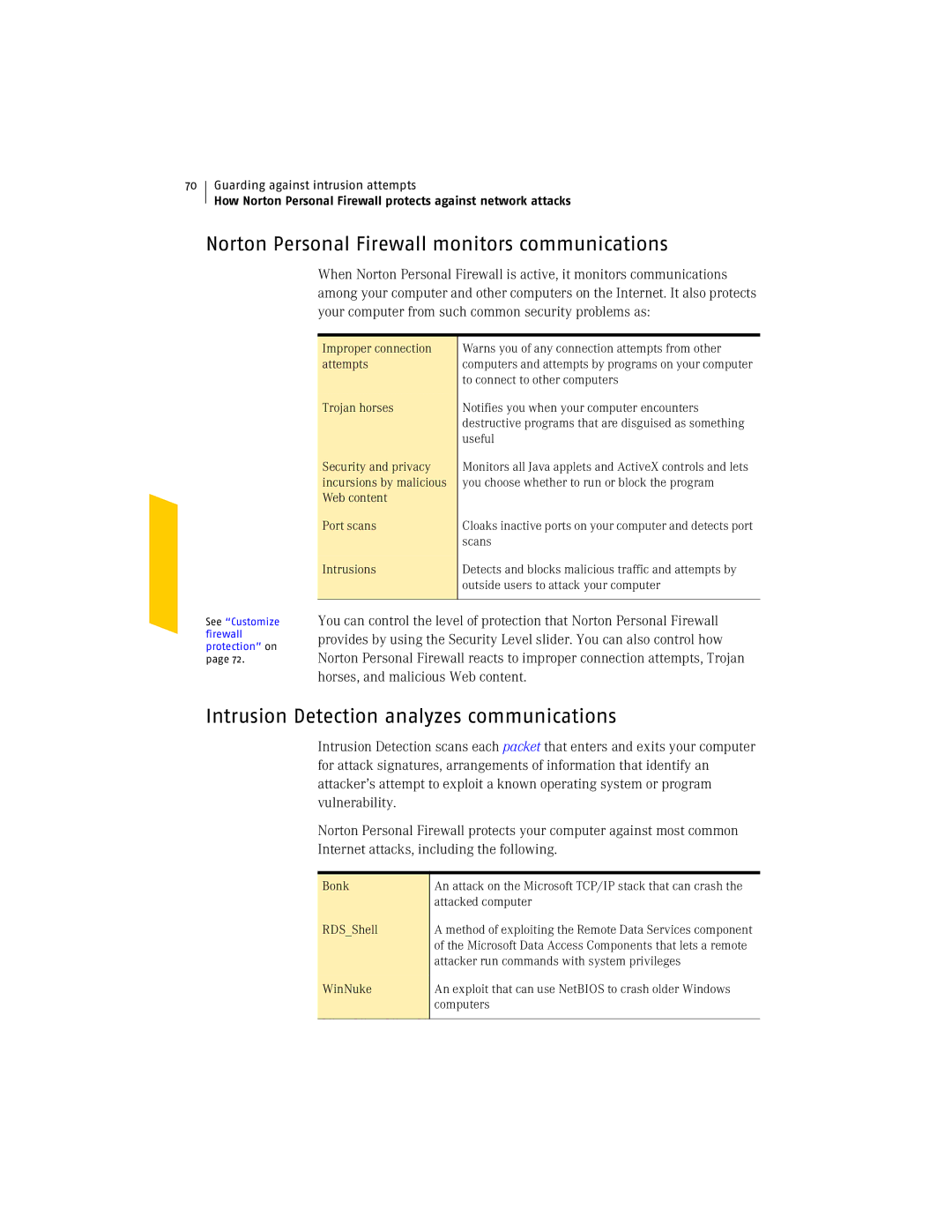
70
Guarding against intrusion attempts
How Norton Personal Firewall protects against network attacks
Norton Personal Firewall monitors communications
When Norton Personal Firewall is active, it monitors communications among your computer and other computers on the Internet. It also protects your computer from such common security problems as:
Improper connection attempts
Trojan horses
Security and privacy incursions by malicious Web content
Port scans
Intrusions
Warns you of any connection attempts from other computers and attempts by programs on your computer to connect to other computers
Notifies you when your computer encounters destructive programs that are disguised as something useful
Monitors all Java applets and ActiveX controls and lets you choose whether to run or block the program
Cloaks inactive ports on your computer and detects port scans
Detects and blocks malicious traffic and attempts by outside users to attack your computer
See “Customize firewall protection” on page 72.
You can control the level of protection that Norton Personal Firewall provides by using the Security Level slider. You can also control how Norton Personal Firewall reacts to improper connection attempts, Trojan horses, and malicious Web content.
Intrusion Detection analyzes communications
Intrusion Detection scans each packet that enters and exits your computer for attack signatures, arrangements of information that identify an attacker’s attempt to exploit a known operating system or program vulnerability.
Norton Personal Firewall protects your computer against most common Internet attacks, including the following.
Bonk
RDS_Shell
WinNuke
An attack on the Microsoft TCP/IP stack that can crash the attacked computer
A method of exploiting the Remote Data Services component of the Microsoft Data Access Components that lets a remote attacker run commands with system privileges
An exploit that can use NetBIOS to crash older Windows computers
